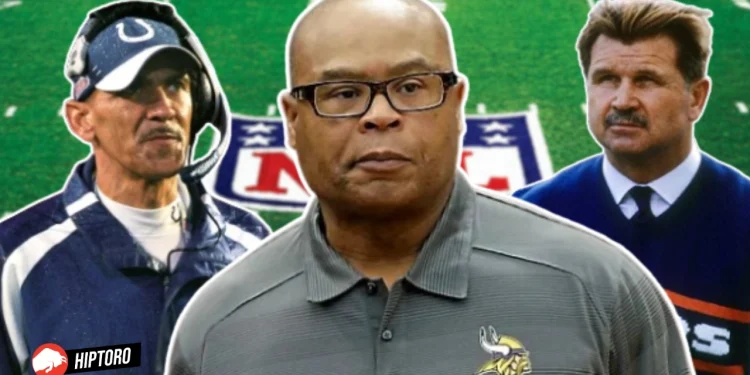The NFL is a testament to the enduring appeal of American football, where players become household names and their exploits on the field inspire generations of fans. For some, however, their journey doesn’t end with the final whistle.
These individuals carry their love for the game into a new phase of leadership and mentorship, becoming coaches who not only understand the sport’s intricacies but also the mindset of their athletes. These unique player-turned-coach stories offer a glimpse into the enduring bonds forged by football, revealing how lessons learned on the gridiron translate into powerful leadership strategies off it.
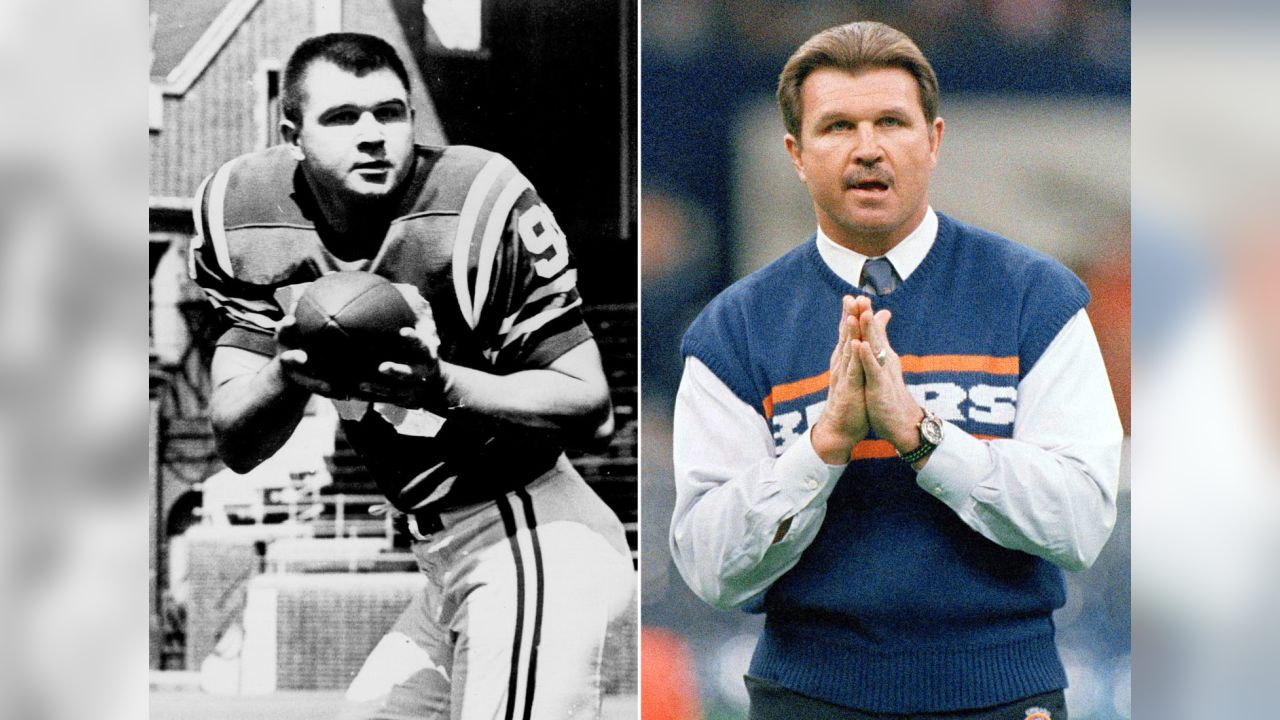
Whether it’s crafting new defensive schemes, reimagining offensive strategies, or instilling a competitive spirit, the ten coaches featured here epitomize the journey from player to coach, showing how greatness on the field can evolve into impactful coaching careers that redefine what it means to lead in professional football. Their stories celebrate unwavering passion, resilience, and a relentless pursuit of excellence that has helped shape the future of the game.
The NFL is known for producing legends on the field, but some players go beyond their playing careers to make a significant impact as coaches. Their knowledge of the game, leadership qualities, and firsthand experience give them unique insights into guiding future generations. Here, we’ll delve into the top ten NFL players who transitioned to coaching and made a name for themselves on the sidelines. These individuals have not only demonstrated their prowess as athletes but also proven their mettle as coaches, shaping the strategies and ethos of their teams.
Here are the Top 10 NFL Players Who Became Coaches
1. Mike Ditka
Mike Ditka’s name is synonymous with football greatness. As a player, he was a dominant tight end, known for his intense, gritty play style and competitive spirit. Ditka’s NFL career began in 1961 with the Chicago Bears, where he made an immediate impact, earning Rookie of the Year honors. He would go on to become a five-time Pro Bowl selection and a member of the 1963 NFL Championship-winning Bears. His 427 receptions and 43 touchdowns were remarkable numbers for a tight end in an era when the position was primarily used for blocking.

After a playing career that included stints with the Philadelphia Eagles and the Dallas Cowboys, Ditka moved into coaching. He first served as an assistant under Tom Landry with the Cowboys before returning to the Bears as head coach in 1982. It was there that he crafted one of the greatest defenses in NFL history, leading the Bears to a Super Bowl XX victory. The 1985 Bears are still considered one of the most dominant teams ever, boasting a defense that allowed just 10 total points in the playoffs.
Ditka’s aggressive coaching style and unapologetic personality defined his tenure. He won NFL Coach of the Year in 1985 and 1988, and his passion became a hallmark of Chicago football. Despite his fiery demeanor, Ditka also demonstrated a unique ability to connect with players. He remained in coaching until the mid-1990s, including a stint with the New Orleans Saints, before transitioning to broadcasting. His legacy as a player and a coach remains unparalleled.
2. Tony Dungy
Tony Dungy’s impact on football transcends the game itself. He began his playing career as a defensive back, spending three years with the Pittsburgh Steelers and San Francisco 49ers. Though his playing career was short, Dungy quickly found his calling in coaching, beginning as an assistant with the Steelers in 1981.
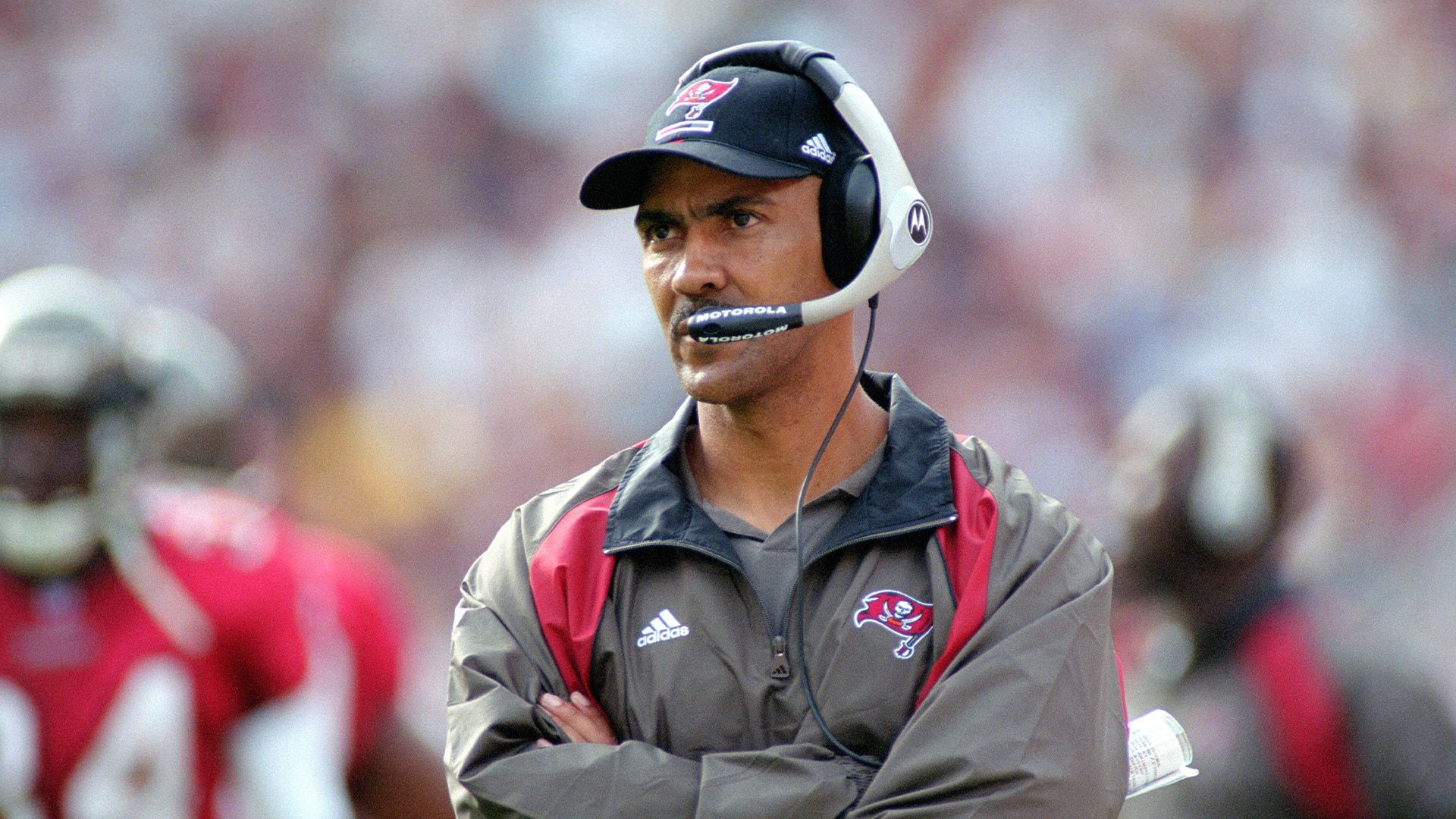
Dungy’s big break came when he was hired as defensive coordinator for the Minnesota Vikings, where he honed his signature defensive philosophies. This eventually led to a head coaching role with the Tampa Bay Buccaneers in 1996. The Buccaneers were struggling when Dungy took over, but he turned them into consistent contenders through his implementation of the “Tampa 2” defense, which emphasized speed, zone coverage, and aggressive playmaking.
In 2002, Dungy took over the Indianapolis Colts, leading them to the playoffs every season during his tenure. The pinnacle of his coaching career came in 2007 when he guided the Colts to a Super Bowl XLI victory. This made Dungy the first African-American head coach to win a Super Bowl. His calm demeanor and unwavering belief in players earned him a reputation as a “players’ coach,” but his strategic acumen made him a formidable opponent.
After retiring in 2008, Dungy became a prominent voice in broadcasting and a respected advocate for community service. He’s also authored several books promoting leadership and character. Dungy’s legacy is that of a trailblazer who changed the face of the NFL while advocating for positive societal change.
3. Mike Singletary
Mike Singletary was one of the most feared linebackers in NFL history, known for his intense leadership and hard-hitting play. A stalwart on the Chicago Bears defense during the 1980s, he was part of a team that became synonymous with dominance. Singletary earned the nickname “Samurai Mike” due to his fierce determination and laser-like focus, particularly evident in his signature wide-eyed stare before each play. His career included 10 Pro Bowl selections, eight All-Pro nods, and two Defensive Player of the Year awards.
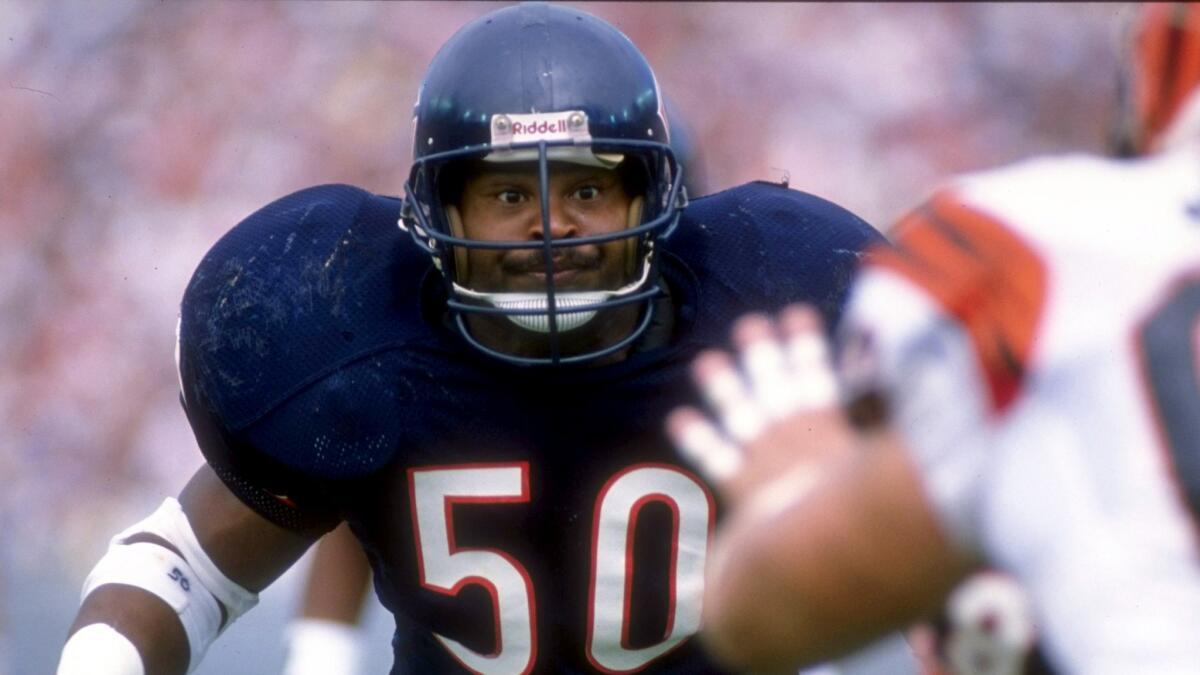
Singletary was crucial in helping the Bears secure their iconic Super Bowl XX victory, with their “46 defense” dismantling opponents with ease. As the anchor of this defense, Singletary epitomized leadership and tactical discipline. His leadership abilities translated well into coaching, and after retiring from playing, he pursued this new career path.
He began his coaching career as a linebackers coach with the Baltimore Ravens before joining the San Francisco 49ers as an assistant head coach. In 2008, he was named interim head coach and was quickly elevated to the permanent role. As a coach, Singletary maintained his fiery demeanor, emphasizing discipline and effort. His intense motivational speeches became a hallmark of his coaching style.
While his head coaching record with the 49ers was mixed, Singletary’s passion for the game and unwavering commitment to his players earned him respect. Despite leaving his head coaching role in 2010, he continued to serve in various coaching capacities across the league. His influence is felt in the attitude and work ethic of the many players he mentored.
4. Ken Whisenhunt
Ken Whisenhunt carved out a modest career as an NFL tight end, playing for the Atlanta Falcons, Washington Redskins, and New York Jets. While he was never a standout on the field, his understanding of offensive schemes made him a valuable asset to the coaching staff after retirement.

He got his first coaching opportunity with the Baltimore Ravens in 1997 as a tight ends coach and quickly moved up the ranks to become the offensive coordinator for the Pittsburgh Steelers. Whisenhunt’s creative play-calling and knack for building game plans made him a hot commodity. His offensive designs were key to the Steelers’ Super Bowl XL victory in 2006.
In 2007, he was hired as head coach of the Arizona Cardinals, a franchise long considered an NFL underdog. Whisenhunt immediately transformed the Cardinals, leading them to their first-ever Super Bowl appearance in 2008. Under his guidance, the offense became one of the league’s most potent, with Kurt Warner reviving his career as quarterback. Whisenhunt’s innovative offensive schemes and ability to adapt play to his players’ strengths made Arizona a perennial contender.
After his tenure with the Cardinals, Whisenhunt continued to impact the league as an offensive coordinator for the San Diego Chargers and later the Tennessee Titans, where he also served as head coach. Although his head coaching career had ups and downs, Whisenhunt remains respected for his offensive acumen and ability to develop quarterbacks.
5. Jack Del Rio
Jack Del Rio’s career began as a standout linebacker, known for his physical play and football intelligence. He spent 11 years in the league, playing for teams like the New Orleans Saints, Kansas City Chiefs, Dallas Cowboys, and Minnesota Vikings. Del Rio’s toughness and versatility made him a valuable defensive leader, earning a Pro Bowl selection in 1994.

After retiring from playing, Del Rio seamlessly transitioned to coaching, starting as an assistant with the New Orleans Saints before moving on to become a linebackers coach with the Baltimore Ravens. In 2002, he was hired as the defensive coordinator of the Carolina Panthers, where his schemes helped establish the team as a defensive powerhouse.
His success with Carolina earned Del Rio a head coaching opportunity with the Jacksonville Jaguars in 2003. He brought a defensive-minded approach that quickly improved the Jaguars’ competitiveness. Under his leadership, the Jaguars reached the playoffs twice and consistently maintained strong defensive play. Del Rio’s fiery demeanor and knack for motivating players made him a favorite among his teams.
In 2015, Del Rio was hired as head coach of the Oakland Raiders, where he returned the team to prominence by leading them to their first playoff appearance in 14 years. He implemented a hard-nosed defensive philosophy that complemented the explosive offense. Though his tenure ended in 2017, Del Rio continued to impact the league as a defensive coordinator, notably with the Washington Commanders, where he built one of the NFL’s most formidable defensive lines.
6. Gary Kubiak
Gary Kubiak might not have been a household name during his playing days, but his football intelligence and leadership skills were evident from the start. As a backup quarterback for the Denver Broncos, Kubiak spent nine seasons in the shadow of John Elway. Despite limited playing time, he was respected for his ability to grasp offensive schemes and guide teammates.
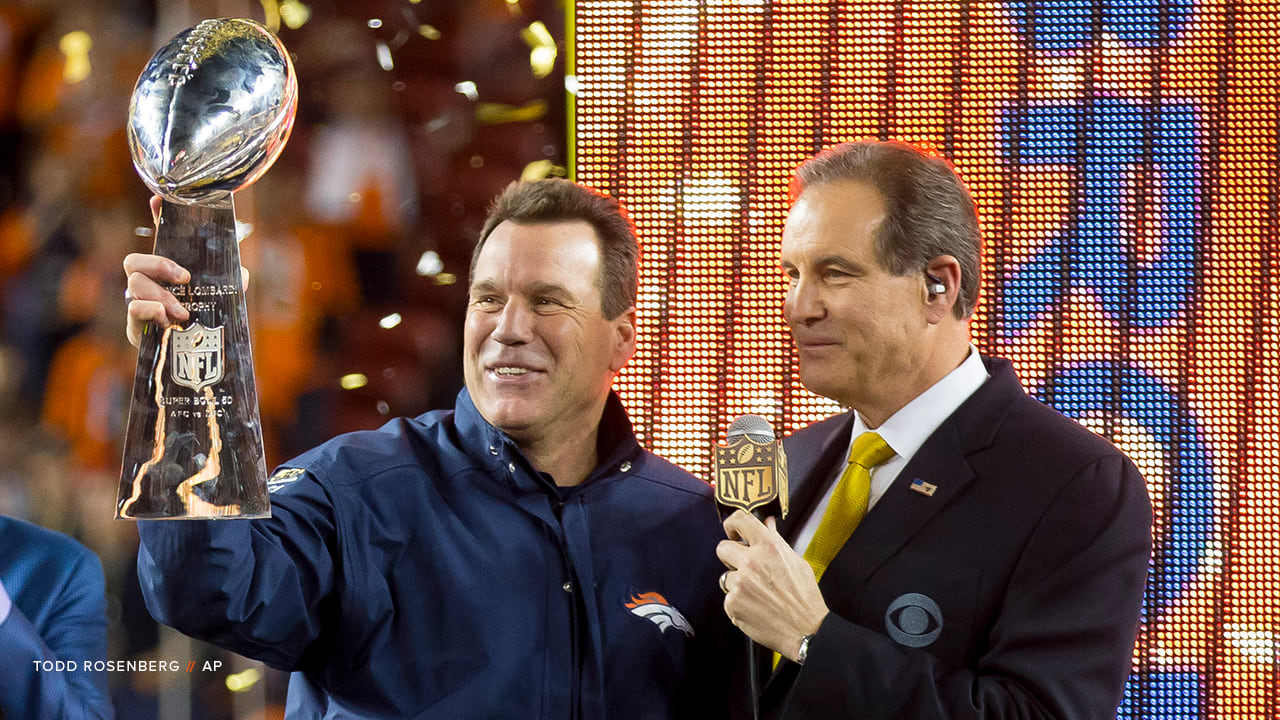
Kubiak’s coaching career began soon after retiring as a player, serving as a quarterbacks coach with the San Francisco 49ers. He then reunited with Mike Shanahan in Denver, becoming the team’s offensive coordinator and helping craft one of the NFL’s most prolific offenses. The Broncos won two Super Bowls in the late 1990s with Kubiak calling the plays.
His success as a coordinator eventually earned Kubiak the head coaching role with the Houston Texans in 2006. He transformed the team into a playoff contender, guiding them to multiple postseason appearances with a balanced offensive attack. Despite battling health issues during his tenure, Kubiak’s dedication to the Texans was unwavering.
Kubiak later returned to Denver as head coach in 2015, leading the team to a Super Bowl 50 victory. His innovative offensive schemes complemented the Broncos’ dominant defense, and he earned praise for his ability to manage quarterbacks, including Peyton Manning in his final season.
Even after stepping away from head coaching, Kubiak continued to influence the league as an offensive coordinator with the Minnesota Vikings, where he helped establish a strong running game and develop young quarterbacks. His legacy as a coach is marked by strategic brilliance and a profound understanding of offensive football.
7. Jim Harbaugh
Jim Harbaugh’s playing career was defined by his gritty competitiveness and strong leadership as a quarterback. He spent 14 seasons in the NFL, primarily with the Chicago Bears and Indianapolis Colts. His determination earned him the nickname “Captain Comeback” for his ability to orchestrate late-game comebacks. Harbaugh’s playing style was marked by resilience and a willingness to take risks.
:max_bytes(150000):strip_icc():focal(810x244:812x246)/Jim-Harbaugh-celebrates-during-the-2024-CFP-National-Championship-game-042224-ace3c5cc1ed5479d84130da8a7d378ed.jpg)
After retiring, Harbaugh swiftly moved into coaching, starting as an assistant at Western Kentucky before earning a head coaching role with the University of San Diego. His success there caught the attention of Stanford University, where he revitalized their football program, making them a national powerhouse.
In 2011, he took the head coaching job with the San Francisco 49ers and immediately turned the struggling franchise into a contender. Harbaugh’s infectious energy and intense preparation became hallmarks of his coaching style. He led the 49ers to Super Bowl XLVII, where they narrowly lost to the Baltimore Ravens. Harbaugh’s competitive spirit and ability to motivate players made him beloved among fans and players alike.
After a tumultuous end to his tenure with the 49ers, Harbaugh returned to college coaching, taking over at the University of Michigan. There, he restored the program’s reputation with innovative offensive schemes and intense recruiting efforts. Despite criticism for his unconventional methods, Harbaugh’s impact is undeniable, both as a coach and mentor to young athletes.
8. Herm Edwards
Herm Edwards’ playing career may be best remembered for the “Miracle at the Meadowlands” fumble return, but his impact on the game extends far beyond that moment. He spent 10 seasons in the NFL as a cornerback, primarily with the Philadelphia Eagles, where his consistency earned him respect across the league.

After retiring from playing, Edwards embarked on a coaching career, starting as an assistant with the Kansas City Chiefs. His ability to connect with players quickly earned him a defensive coordinator position, and in 2001, he became head coach of the New York Jets. Edwards emphasized discipline and character, leading the Jets to the playoffs in three of his five seasons.
He later took over as head coach of the Kansas City Chiefs, though his tenure was less successful. Despite the challenges, Edwards remained true to his motivational style, emphasizing the importance of character and preparation. His famous “You play to win the game!” speech became a defining moment of his career, showcasing his unwavering belief in the competitive spirit.
After leaving coaching, Edwards became a respected NFL analyst, where he continued to share his wisdom and insights. In 2018, he returned to coaching at Arizona State University, bringing his disciplined and motivational approach to the college ranks. Edwards’ legacy is rooted in his dedication to inspiring athletes and teaching them the values of integrity and hard work.
9. Dan Reeves
Dan Reeves made a name for himself as a versatile player for the Dallas Cowboys, contributing both as a running back and receiver. He played under the legendary Tom Landry, winning Super Bowl VI with the team. Despite a series of injuries that cut his playing career short, Reeves was respected for his toughness and understanding of the game.
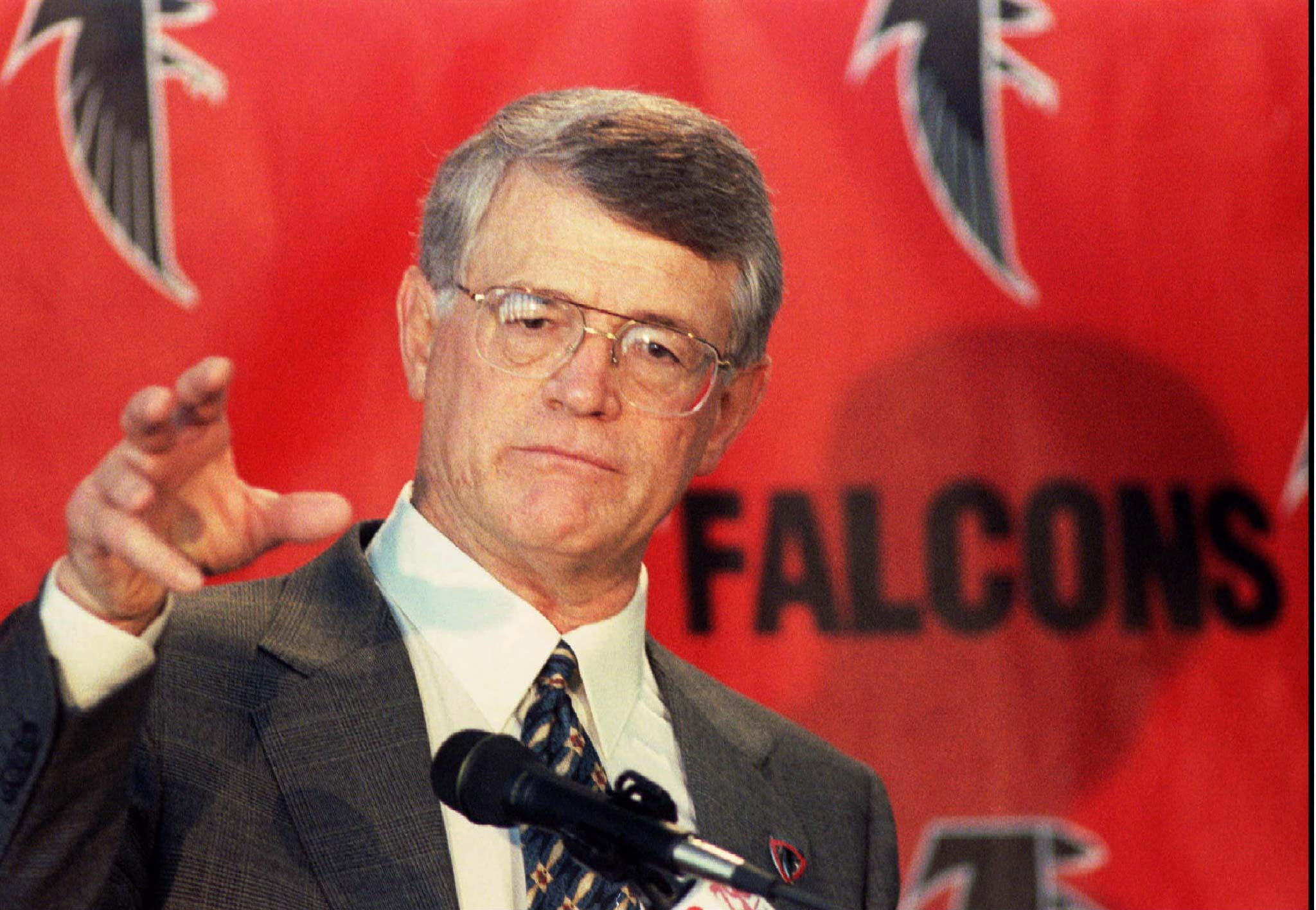
He transitioned to coaching as an assistant under Landry and became known for his offensive creativity. This ability helped him secure a head coaching position with the Denver Broncos in 1981. During his tenure, Reeves guided the Broncos to three Super Bowl appearances, thanks in part to his development of quarterback John Elway. Reeves’ teams were known for their disciplined approach and balanced offensive schemes.
In 1993, he took over as head coach of the New York Giants, leading them to a playoff appearance and earning NFL Coach of the Year honors. Reeves was later hired by the Atlanta Falcons, where he orchestrated one of the most remarkable turnarounds in league history, leading them to a Super Bowl appearance in 1998.
Reeves’ success as a coach was rooted in his ability to build cohesive units and develop quarterback talent. His dedication to discipline and strategy made him a revered figure, and his teams consistently overachieved. Despite never winning a Super Bowl as a head coach, his legacy remains significant, and he is remembered as one of the most influential minds in football history.
10. Art Shell
Art Shell was a trailblazer both on the field and on the sidelines. As a player, he was a dominant offensive lineman for the Oakland Raiders, known for his strength, technique, and relentless work ethic. A key part of the Raiders’ offensive line, Shell helped lead the team to two Super Bowl victories and earned eight Pro Bowl selections. His consistent excellence earned him a spot in the Pro Football Hall of Fame.

After his playing career, Shell broke new ground by becoming the first African-American head coach in the NFL’s modern era. He took over as head coach of the Raiders in 1989, guiding them to three playoff appearances. Shell’s coaching style emphasized discipline, preparation, and mental toughness. His teams reflected the “Commitment to Excellence” mantra that the Raiders became known for.
Although his coaching tenure was relatively brief, Shell’s impact on the NFL was monumental. He demonstrated that African-American coaches could lead teams successfully, paving the way for future generations. After leaving the Raiders, Shell continued to serve in various coaching and executive roles, always maintaining his focus on promoting opportunities for minority coaches.
Shell’s legacy is marked by his contributions to the game and his role as a pioneer. His success as a coach and player is a testament to his football intelligence and dedication, and he remains a revered figure in Raiders history and the broader NFL community.
These ten individuals illustrate how the journey from player to coach can be incredibly rewarding, with many of them finding new heights of success after their playing careers. They leveraged their football IQ, passion, and leadership skills to shape teams and leave a lasting legacy in the league. Their stories inspire current and future generations, proving that excellence on the field can translate to greatness on the sidelines.
From Mike Ditka’s spirited sideline persona to Art Shell’s pioneering approach that broke barriers for future coaches, these stories illustrate the profound influence that former NFL players have wielded as coaches. Their legacies are not solely about wins and losses, but about reshaping the culture of football teams and reinforcing values like discipline, commitment, and strategic thinking.
Each one, from Tony Dungy’s groundbreaking Super Bowl victory to Jim Harbaugh’s unwavering intensity, has brought a unique blend of leadership and experience to their roles, forging new identities for their teams while elevating players to new heights. These coaches created environments where passion meets precision, and where players are encouraged to strive for excellence beyond their perceived limits.
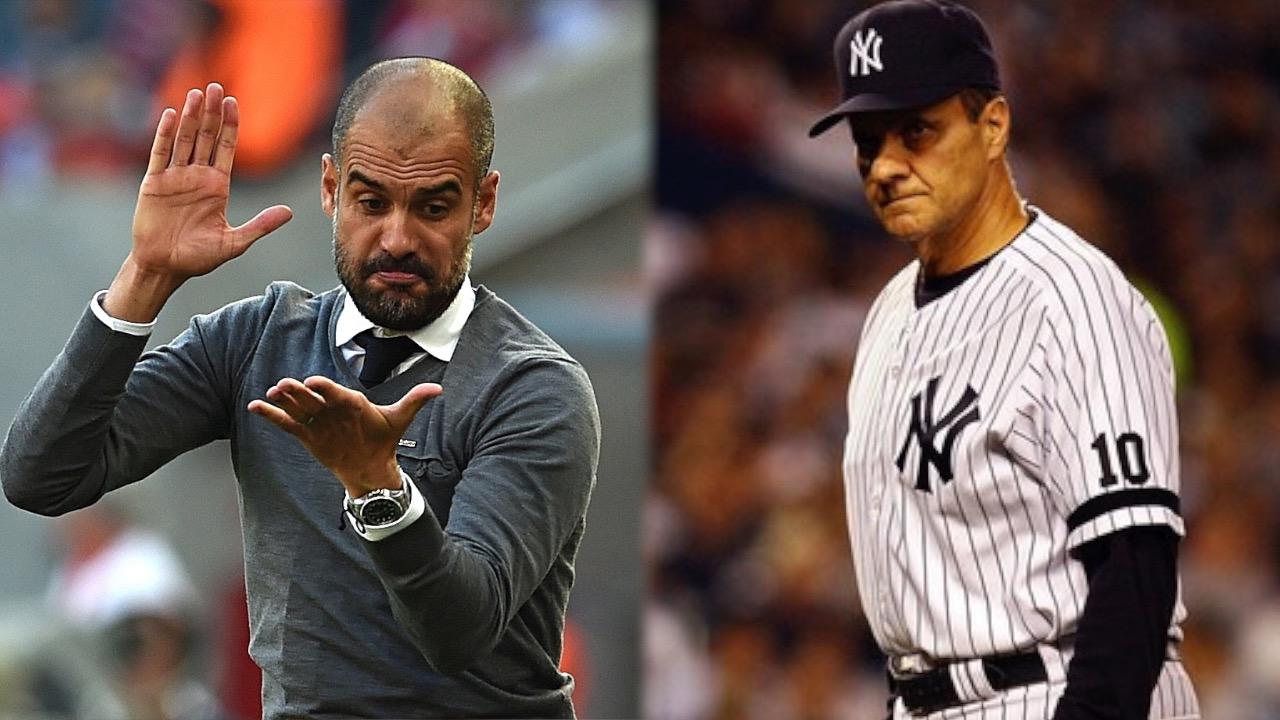
Their ability to connect with athletes, build cohesive team identities, and innovate playbooks speaks to the remarkable blend of insight and instinct that comes from having lived the player experience. By passing on their wisdom, they’ve cultivated the next generation of leaders who carry forth their values of perseverance and integrity.
The bridge they’ve built between the roles of player and coach demonstrates that the journey of athletic achievement doesn’t have to end when the playing days are over. Their stories will continue to inspire aspiring players and coaches, showing that the road from player to coach is one paved with dedication, resilience, and a deep love for the game. Ultimately, they have reshaped what it means to be a leader in the NFL, leaving behind legacies that transcend statistics and championships.


